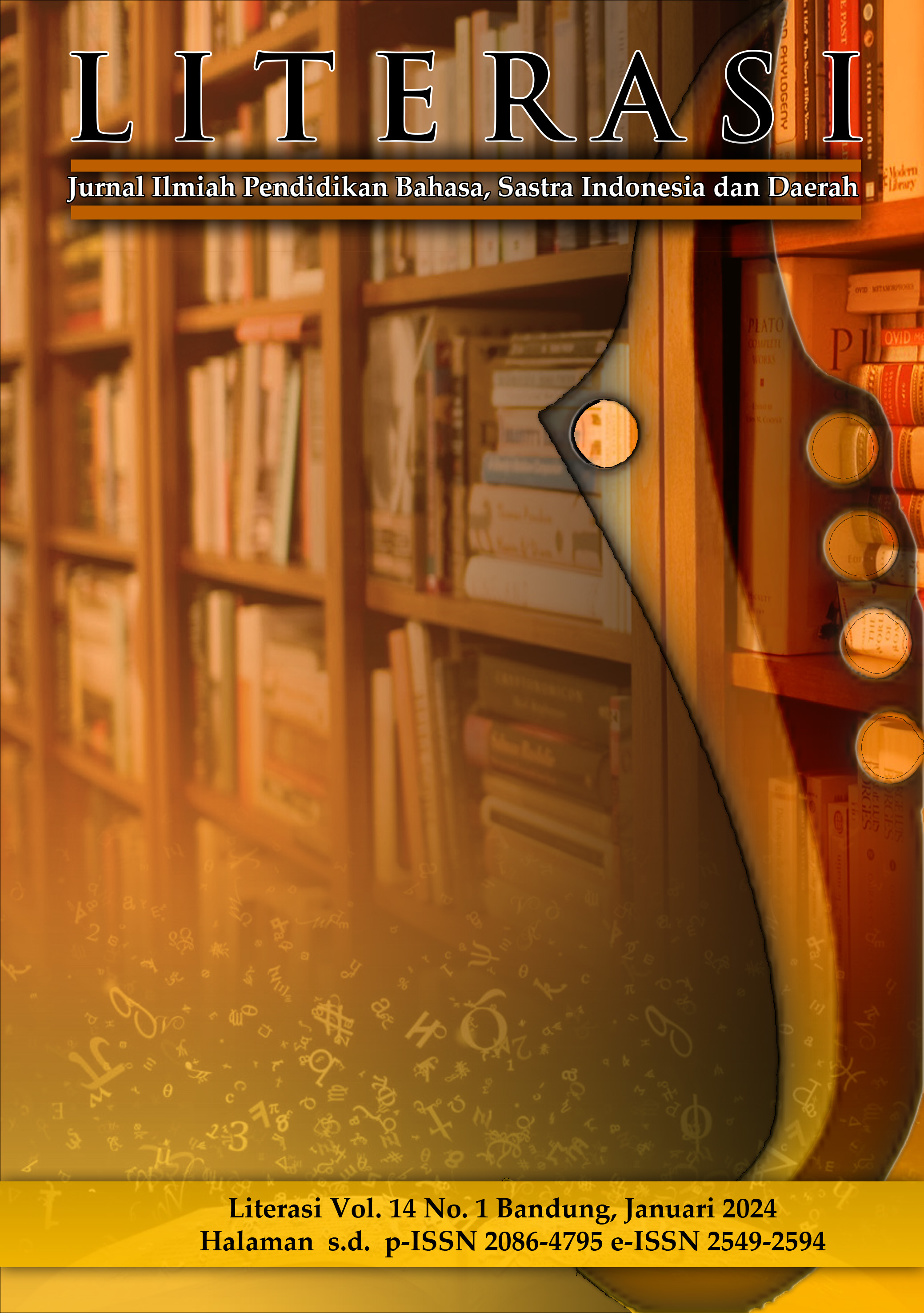SAPAAN SEBAGAI UNGKAPAN FATIS PADA MASYARAKAT SUNDA
DOI:
https://doi.org/10.23969/literasi.v14i1.10098Abstract
Indonesia is a country with various cultures. The way people use language can reflects cultural value. Language has specific functions, and one of them is a phatic function. The phatic form is used to maintain social bonds between speakers and hearers. Sundanese is one of the regional languages in Indonesia where many phatic forms are found, one of them is the use of addressed terms. In Sundanese culture, several forms of addressed terms are found, which are identified as phatic forms. In the culture of the Sundanese people, several forms of address terms are found, which are identified as phatic expressions. In collecting the data, observation is done to find natural data in the forms of address terms used by adolescent and adult speakers in Bandung, West Java. A survey using questionnaire was also conducted to validate the data obtained through observation. Based on the analysis and discussion, this study shows that there are several functional differences in the use of address terms as phatic expression in the domain of friendship, family, and strangers analyzed based on age perspective. The use of address terms as phatic expression reflects the culture of Sundanese people that uphold politeness values.
Keywords: Address terms; Phatic expression; Sundanese speech community; Sundanese language.
Downloads
References
Al-S Al-Shboul. Y., Maros. M., & Yasin. M.S.M. (2012). An intercultural study of refusal strategies in English between Jordanian EFL and Malay ESL postgraduate students. The Southeast Asian Journal of English Language Studies, 18 (3), 29-39.
Arimi, S. (1998). Basa-basi dalam Masyarakat Indonesia. Thesis (unpublished). Yogyakarta: Universitas Gadjah Mada.
Brown. A., & Gilman. (1968). ‘The Pronouns of Power and Solidarity’, in T. A. Sebeok (ed.), Style in Language. MIT Press, 253-76.
Brown, P. & Levinson, S. (1987). Politeness: Some Universal in Language Usage. Cambridge University Press.
Decapua, A. & Dunham, J.F. (2007). The pragmatics of advice giving: Cross- cultural perspective. Intercultural Pragmatics, 4(3), 319-342. doi: 10.1515/IP.2007.016
Halliday, M.A.K. (1973). Exploration in Function of Language. London: Edward Arnold.
Malinowski. B. (1923). The Problem of Meaning in Primitive Languages. In C. K. Ogden, & I. A.
Richards (Eds.), The Meaning of Meaning (pp. 296-336).
Tsai, M.-H., & Kinginger, C. (2014). Giving and receiving advice in computer-mediated peer response activities. CALICO Journal, 32(1), 82-112. https://doi.org/10.1558/calico.v32i1.25959.
Yamada. (1997). Different Games, Different Rules: Why Americans and Japanese Misunderstand Each Other, The Journal of Japanese Studies, 25(1). 220-225. https://doi.org/10.2307/133379.
Wardhaugh, R. (1992). An Introduction to Sociolinguistics (2nd Ed.). Oxford, United Kingdom:
Blackwell Publisher. Wardhaugh, R. (2006). An introduction to sociolinguistics (5th Ed). Ontario, Canada: Wiley-Blackwell.
Downloads
Published
Issue
Section
License
Copyright (c) 2024 Literasi: Jurnal Ilmiah Pendidikan Bahasa, Sastra Indonesia dan Daerah

This work is licensed under a Creative Commons Attribution 4.0 International License.
Hak cipta artikel yang diterbitkan di jurnal ilmiah dimiliki oleh penerbit, bukan penulis. Hal ini berkaitan dengan koordinasi hak akses untuk cetak ulang atau penggunaan lainnya. Dalam hal ini penerbit mempunyai keluluasaan untuk mempublikasikan artikel sesuai dengan kesepakanan Transfer Agreement (penyerahan hak cipta) antara penerbit dengan penulis.















